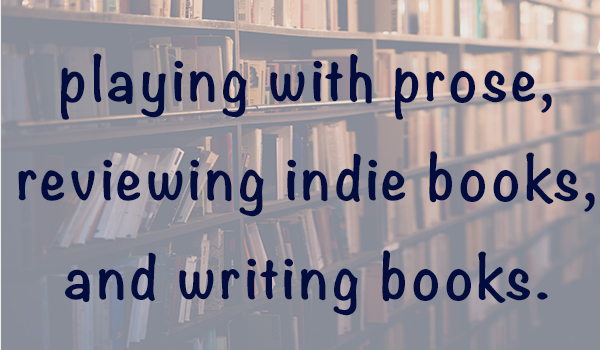
#27 Underneath the Rubble
Hello everybody, today we have a piece from BXC on Writing.com titled “Underneath the Rubble”.
Paragraph 1/2
Terror.
That was the only thing five-year-old Carson Krot could feel as he lay trapped underneath the rubble of the destroyed home, his left eye the single patch of skin left uncovered by dirt and stone. Barely able to breathe, he could hardly have managed to cry out for help even if his mind were clear enough that he could think to do so. His sister Krystal lay beside him, face down, unconscious.
I, with my infinite wisdom, see a couple of subjects to peruse at the start. The first is some disagreement about the style choice to break ‘terror’ into its own paragraph. This can be an effective method to emphasize words, imbuing them with additional weight and impact by isolating and staggering them. I just don’t think it works here. ‘Terror’ isn’t meaningful enough, there’s nothing about it or the situation that merits or benefits from the emphasis. The main paragraph’s first sentence is also a direct continuation of ‘terror’, which dilutes the impact of the isolation. Mostly though, it’s the first point.
The second point gracing my profound intellectual proclivities is simply the structure of the first real sentence (because ‘terror’ doesn’t count.) The sentence is wordy because the author takes a circuitous route to convey his meaning, at the start at least. It’s also a little wordy due to the sheer volume they’re trying to convey, but we’ll resolve that momentarily. For the most part, I would like to dispense with the style and simply say the information outright— Five-year-old Carson Krot felt only terror…— but even this is a little undesirable since it distances the readers from the emotion, specifically the ‘felt’ and the way the information is told to the reader as opposed to displayed, or attached to some visceral action that could validate the emotion, giving the reader something to empathize with. “But!” you wail piteously in your genius, is being trapped under rubble and unable to breathe terrifying? Yes, but that’s where the sentence’s wordiness injures the author’s desire. It segregates the core emotion from the emotive source and dilutes it by cluttering it with information, which both distracts from the emotional core and slows the pay off. The word choice also plays a roll, the phrases ‘lay trapped’ and ‘left uncovered’ are inert, lacking both inherent emotion and impact/energy which prevents them from empowering the sentence. The answer to this is to replace the current ‘hands-off’ structure with something more immediate and forceful.
—Terror. That was all five-year-old Carson Krot felt as the rubble squeezed down, obscuring everything but his left eye beneath dirt and stone.—
I excised a fair amount of information with this rewrite, mostly because it was unnecessary and simply distracted from the core peril of the sentence. We didn’t need to know the rubble came from a house and ‘the single patch of skin’ is needless specific (Possibly it was included to exaggerate the danger or implement eloquence, but doesn’t do much of either since its unnecessary for meaning and wordy.) Other than those deletes, I tried to apply more energetic words. ‘Squeezed’ is distinctively more active than ‘lay underneath’, but also more descriptive since it conveys weight on Carson, which in turn validates his danger, making it more real and threatening. This is another reason ‘lay underneath’ didn’t work as well, it didn’t interact with the danger, thus distancing Carson, and thus the reader, from it. I chose ‘obscuring’ (though I’m not entirely pleased with it) over ‘left uncovered’ for similar reasons, but mostly because it’s a single word and more distinctive than ‘left uncovered’. It doesn’t add any particular emotion to the sentence, so there’s probably still a better word/structure.
The second sentence (as dictated by my inchoate pecuniary truculence) is a simpler affair, being most just unnecessarily wordy. (Barely able to breathe, he could hardly have managed to cry out for help even if his mind were clear enough that he could think to do so.)
‘Managed to’ is simply unnecessary, just switch ‘cry’ to active instead of passive. ‘he could think’ is also entirely unnecessary. I would also change ‘cry/cried out’ to ‘screamed’ (for the single word,) and convert to a more active structure for the second half. ‘Hardly’ is also a little ambiguous, leaving the reader uncertain whether Carson can’t scream, or if he can only do it very quietly.
— Fighting to just breathe, he couldn’t have screamed for help even if his disoriented mind could muster the words.—
OR
—Fighting to just breathe, his lungs wouldn’t have screamed even if his disoriented mind could form the words.—
Obviously significant changes here, more so than I usually embark upon. ‘I chose ‘fighting’ over ‘barely’ because ‘fighting’ is more active and desperate (again validating and compounding his environment.) Switch to ‘couldn’t/wouldn’t’ for the clarity, and used ‘disoriented’ because that conveys his mental status more effectively and actively than ‘were clear enough’. Switched to ‘could muster/form’ over ‘to do so’ because ‘muster/form’ have actual character. The second sentence was an attempt to vary sentence composition. ‘He couldn’t have…’ is the obvious way to convey this information and pleasing, but choosing a composition outside of the immediate and obvious can often improve the sentence, make it more interesting to read because they won’t be able to guess what’s to follow (on the small scale.) It also tends to vary sentence structure and present the readers with less immediately conceivable information.
This conducts us, and my staggering precocity, to the paragraph’s final sentence. (His sister Krystal lay beside him, face down, unconscious.)
I have few qualms with this sentence, most grammatically. I believe ‘Krystal’ needs to be bracketed in commas, and that last comma after ‘down’ may need to be an ‘and.’
Full paragraph— Terror. That was all five-year-old Carson Krot felt as the rubble squeezed down, obscuring everything but his left eye beneath dirt and stone. Fighting to just breathe, his lungs wouldn’t have screamed even if his disoriented mind could muster the words. His sister, Krystal, lay beside him, face down and unconscious.—
For the most part, this read pretty well. The transition to ‘obscuring’ might be a little bit shaky, but the main problem is the transition to the final sentence. It just doesn’t read well. We can ameliorate it slightly by deleting ‘Krystal’, but it ultimately struggles because it diverges sharply from the first two sentences in both structure and focus. The first two focus on Carson and use energetic words to paint an energetic scene. In contrast, the third sentence changes style and tone, going from desperate to unhurried, from actively trying to compound the peril of his situation to discussing an ancillary factor. We need to tie the third sentence back to him (or potentially migrate it to a new paragraph,) and how he can’t move, marry them so it builds into him being unable to move. The most obvious solution to this is his sister being in some form of danger, but that will require me to employ my precognitive abilities and scry what the story has in store…and nothing. His sister is in no immediate peril, and making it so is unfeasible due to future events. Thus, I think the best option is to migrate the final sentence down to the next paragraph, which is only a sentence long and a continuation of it.
His sister, Krystal, lay beside him, face down and unconscious. She was the lucky one. (the scene ends here.)
Taking these sentences on their own merit, I cannot divine a purpose for the second of these besides to state the obvious; if she’s free, then she’s obviously luckier than him. (If she wasn’t for some reason, the author would mention it.) It does vaguely indicate she’s free, but I dislike the vagueness. This presents two general options…
—His sister lay beside him, face down and unconscious…—
OR
—His sister lay beside him, face down and unconscious but free.
There is mostly a meta difference between the two of these. The first sentence trails off, leaving his sister’s condition uncertain and thus cultivating urgency, but her actual state is entirely ambiguous as to whether or not she’s buried. The second sentence makes her status evident, but doesn’t really add anything to the story besides as a side note. We can’t trail the sentence off here as we did with the first because her being free changes the ambiguity of her being in danger to ‘will she wake up in time to save him.’ Maybe something like…
—His sister lay beside him, half-buried, face down and unconscious…—
This maintains the potential for peril (allowing for the trail off which also serves as a good transition to the scene/POV change) while describing her state. Half-buried also leaves her condition just ambiguous enough that the author can spin it either way he desires. (This is not a practice I would generally advise since clarity is almost always preferable, but the ambiguity hurts nothing here. If her part in this scene was important {instead of just being plot furniture} then this would definitely be unadvisable. But, as it stands, this is an acceptable compromise.) Leaving us with…
—Terror. That was all five-year-old Carson Krot felt as the rubble squeezed down, obscuring everything but his left eye beneath dirt and stone. Fighting to just breathe, his lungs wouldn’t have screamed even if his disoriented mind could muster the words.
His sister lay beside him, half-buried, face down and unconscious as night swallowed the sky …—
I took a little artistic liberty with the final ‘night’ addition, mostly to help close these paragraphs and trump up her peril a wee bit more. There was also some rhythm concerns involved.
I am content with this, so I will sign off on my perplexing peculiarities pedantically and bid you all farewell.
If you like what you’ve read, consider checking out some of the author’s other content. https://www.writing.com/main/portfolio/view/mastercoleIf you like what I did, consider subscribing or even submitting a piece to my tender embrace

